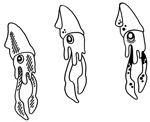(published March 18, 2004)

The proverb that no man is a hero to his valet is obviously of masculine manufacture. It is both insincere and untrue: insincere because it merely masks the egotistic doctrine that he is potentially a hero to everyone else, and untrue because a valet, being a fourth-rate man himself, is likely to be the last person in the world to penetrate his master's charlatanry. Who ever heard of valet who didn't envy his master wholeheartedly? who wouldn't willingly change places with his master? who didn't secretly wish that he was his master? A man's wife labours under no such naive folly. She may envy her husband, true enough, certain of his more soothing prerogatives and sentimentalities. She may envy him his masculine liberty of movement and occupation, his impenetrable complacency, his peasant-like delight in petty vices, his capacity for hiding the harsh face of reality behind the cloak of romanticism, his general innocence and childishness. But she never envies him his puerile ego; she never envies him his shoddy and preposterous soul.
This shrewd perception of masculine bombast and make-believe, this acute understanding of man as the eternal tragic comedian, is at the bottom of that compassionate irony which paces under the name of the maternal instinct. A woman wishes to mother a man simply because she sees into his helplessness, his need of an amiable environment, his touching self delusion. That ironical note is not only daily apparent in real life; it sets the whole tone of feminine fiction. The woman novelist, if she be skillful enough to arise out of mere imitation into genuine self-expression, never takes her heroes quite seriously. From the day of George Sand to the day of Selma Lagerlof she has always got into her character study a touch of superior aloofness, of ill-concealed derision. I can't recall a single masculine figure created by a woman who is not, at bottom, a booby.
Share on Facebook
![]() Tweet about this Piece
Tweet about this Piece
by Fritz Swanson
Rant Archives